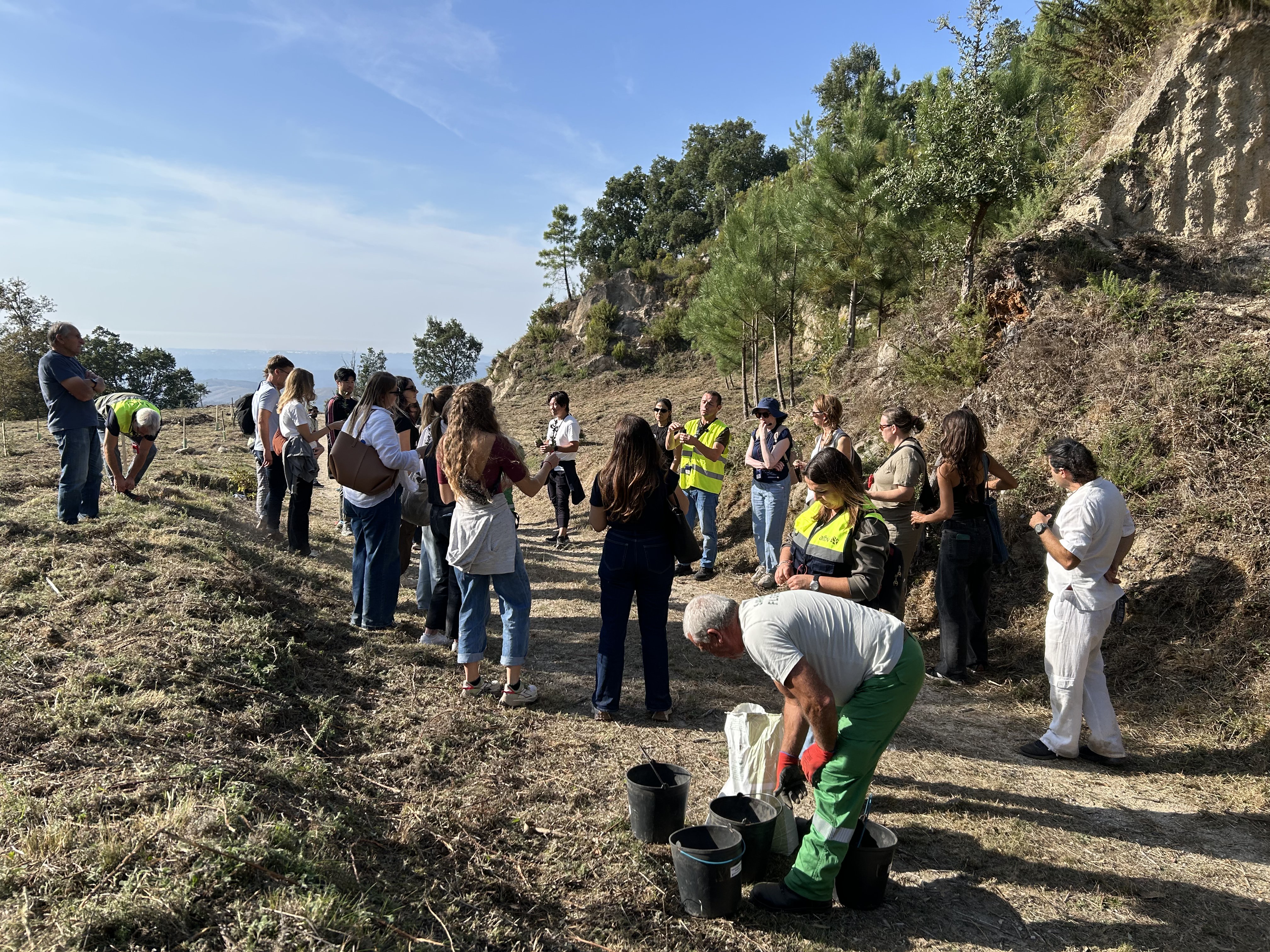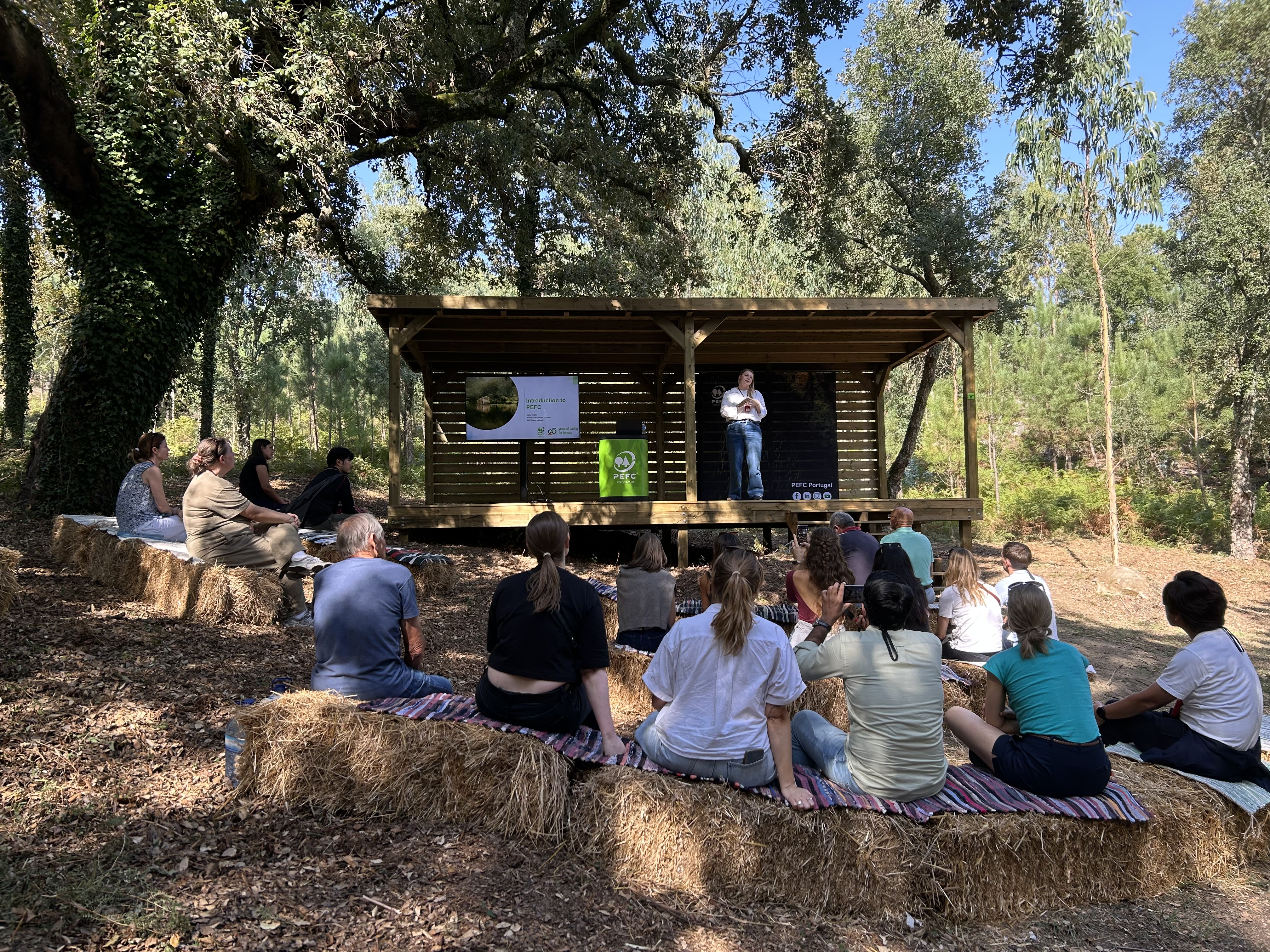From Forest to Fashion: Textile Exchange Conference delegates explore sustainable forestry in Portugal
Exploring how sustainable forest management in Portugal connects to responsible fashion sourcing, supporting biodiversity, local communities, and a circular textile future.
From Forest to Fashion: Textile Exchange Conference delegates explore sustainable forestry in Portugal
23 October 2025 Event report
As part of the official Textile Exchange Conference 2025 programme in Lisbon, over 20 sustainability professionals from leading global fashion brands stepped out of the city and into the forests of Talhadas, in Sever do Vouga, to experience first-hand how sustainably managed forests support responsible sourcing for the fashion and textile sectors.
Discovering the Pedreirinhas Route

The visit, hosted by PEFC International and PEFC Portugal in collaboration with Association for Regional Forest Certification in Baixo Vouga (ACF BV), took participants along the newly inaugurated Rota das Pedreirinhas de Talhadas - a forest trail that showcases local biodiversity and sustainable forest management practices. The area is part of the Sustainable Forests and Demonstration Sites Project, an initiative that illustrates how responsible forestry can strengthen rural livelihoods, protect ecosystems, and contribute to climate resilience.
Participants explored a PEFC-certified eucalyptus forest, interspersed with oak, cork oak, and other native species. This diversified management model enhances soil health, supports biodiversity, and improves forest resilience against climate change. Eucalyptus, a key raw material for man-made cellulosic fibres (MMCFs) such as viscose, served as a tangible link between forest landscapes and the materials used in everyday garments.
Collaboration across the value chain
The field visit also highlighted how collaboration between the forestry and fashion sectors can drive meaningful change. The project in Talhadas was made possible through industry support from the Inditex Group, whose investment is contributing to reforestation and biodiversity restoration in the region. This partnership demonstrates how brand commitments to sustainability and ESG goals can translate into real, on-the-ground impact.
Local partners, including ACF Baixo Vouga, Associação Bioliving, and FORESTIS, guided the group through the sites. Presentations by André Chaves (FORESTIS), José Francisco da Silva (FORESTIS), Rafael Marques (Associação Bioliving) and Luís Sarabando (ACF Baixo Vouga) offered valuable insights into how community-led forest management and PEFC certification promote the circular economy, create rural employment, and secure a sustainable future for Portugal’s forest sector
From knowledge exchange to action

The day concluded with an interactive workshop on responsible sourcing of MMCFs, led by Julia Kozlik and Deepa Hingorani of PEFC International. The session explored how nature-based solutions underpin the creation of renewable, reusable, and biodegradable textiles.
Discussions focused on building transparent and traceable supply chains, aligning sustainability reporting with key ESG indicators, and ensuring that sourcing decisions reinforce forest-positive outcomes.
Participants also left a lasting mark by planting young cork oaks, symbolising their shared commitment to regeneration and long-term sustainability.
A shared responsibility for forests and fashion
For many attendees, the visit underscored a vital message: that sustainability in fashion begins with the forest. By sourcing forest-based materials - including MMCFs, paper packaging, cork, and natural rubber - from sustainably managed, PEFC-certified forests, brands can help protect nature, empower communities, and ensure their products are truly responsible from origin to shelf.
The field trip closed with a call to action for the industry:
- Commit to sourcing only from sustainably managed forests;
- Communicate clear sustainability expectations to suppliers; and
- Collaborate to expand certification throughout the supply chain.
Through partnerships like this, the fashion industry can help nurture thriving forests, resilient ecosystems, and a circular future where people and nature flourish together.